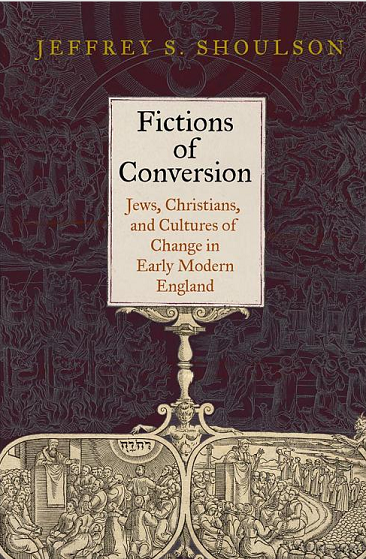Spinoza in het voorbijgaan genoemd
 Waarmee
literatuurweten-schappers zich zoal bezig kunnen houden. Dit jaar verscheen
Waarmee
literatuurweten-schappers zich zoal bezig kunnen houden. Dit jaar verscheen
Jeffrey
Shoulson, Fictions of Conversion, Jews,
Christians, and Cultures of Change in Early Modern England. University of
Pennsylvenia Press, 2013
Het boek “explores
how religious transformation influenced early modern England.”
Ik zou daarop
niet in een blog gewezen hebben, als niet de enige keer dat Spinoza erin – overigens
alleen maar – genoemd wordt, echter op bladzijden die google.books niet laat
zien, deze nu net toevallig vandaag gepubliceerd worden op tabletmag.com
De Tablet, A new read on Jewish life, kreeg
toestemming uit dat boek een gedeelte te publiceren en dat stuk, "Did the False
Jewish Messiah Sabbatai Sevi Inspire John Milton’s ‘Paradise Regained’?" geeft
juist twee bladzijden die we bij Google niet mochten zien.
De alinea waarin Spinoza voorkomt neem ik hier over.
“While there is no explicit
evidence of John Milton having heard of the Sabbatian movement, it is difficult
to imagine that he would not have encountered news about these extraordinary
events that so fascinated his countrymen. We may even speculate about two
specific connections. First, Milton’s longtime friend and correspondent Henry
Oldenberg, who had by this time become the secretary to the Royal Society, was
so intrigued by the news of Sabbatai Sevi that he wrote several letters to
Baruch Spinoza inquiring about the meaning of these events. Second, Edward
Phillips, Milton’s nephew, pupil, and biographer, became John Evelyn’s son’s
tutor some time after October 1663 and remained in that position until February
1665. Milton is also believed to have had his own direct contacts with Evelyn.
Whether these contacts were before or after Evelyn’s publication of his account
of Sabbatai Sevi, or before or after Milton began the planning and composition
of his late poem Paradise Regained is a matter of speculation. It
remains a tantalizing possibility, however, that the two spoke in some detail
about this contemporary instance of a failed Jewish messianism.”
Voor de rest verwijs ik naar tabletmag.com en books.google. Het is weinig, ik geef het toe, maar de aanvulling van het een op het ander bracht me ertoe er toch even op te wijzen.
Stan Verdult

